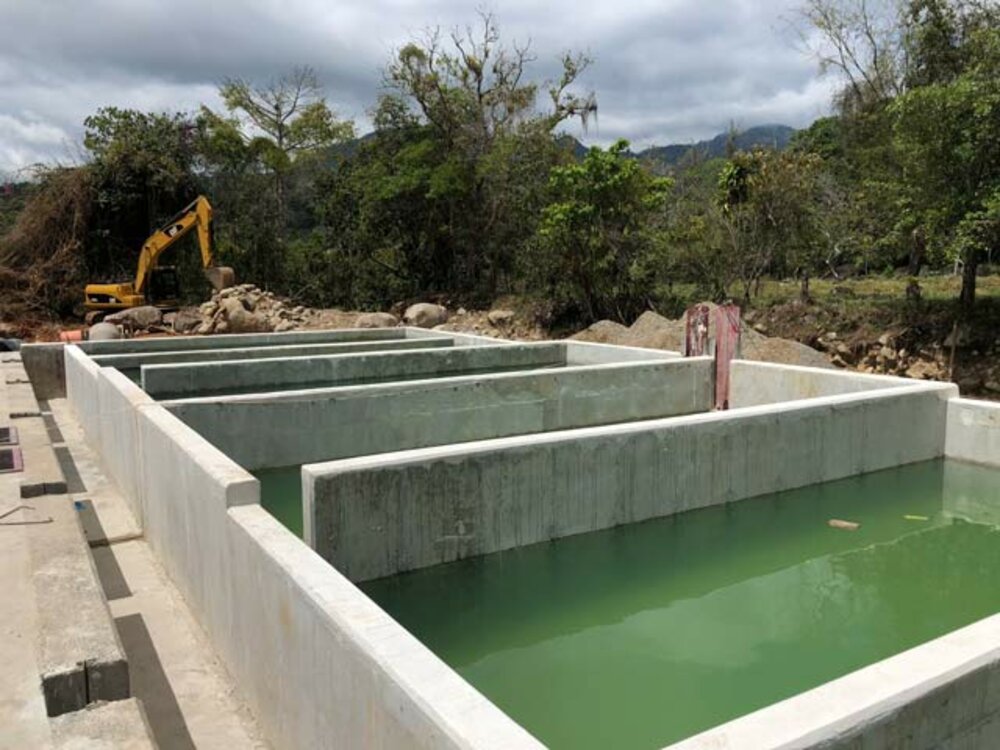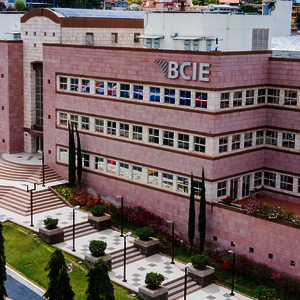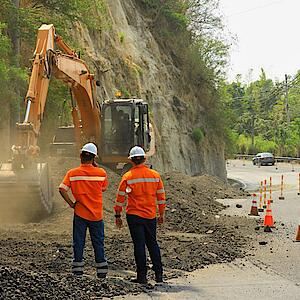CABEI improves integrated water resource management in the region

From 2015 to date the Bank has approved US$571,109.94.
Tegucigalpa, March 22, 2019(AFP SERVICES/CABEI).- In the Central American region, water is a basic necessity that requires efficient and sustainable management; in this sense, the Central American Bank for Economic Integration (CABEI), which is the financial arm of the region's integration and development, invests resources for the fulfillment of regional objectives and goals regarding water and sanitation, promoting integrated water resource management.
Joining forces
Aware of its role, CABEI has a sectoral water intervention framework and a regional water and sanitation program to improve the quality of life of Central Americans through access to basic services, such as potable water and sanitation, including wastewater treatment, through support to relevant strategic and thematic initiatives, making available to its member countries a series of financial instruments that adjust to the different needs in this sector.
CABEI continues to strengthen its presence in the region, within its commitment to guarantee access to quality water and offer a sustainable management of the water cycle; from 2015 to date, it has approved operations in the order of US$571,109.94, benefiting approximately 1,498,583 inhabitants of El Salvador, Nicaragua, Costa Rica and Panama with water and sanitation projects and programs and US$674,600 for integrated water resources management projects, benefiting nearly 880,343 inhabitants of the Dominican Republic and Costa Rica.
Within its framework of sectoral water intervention, CABEI has financed other noteworthy projects, including the Sustainability Program for the Rural Water and Sanitation Sector in Nicaragua; the Rehabilitation Project for the Las Pavas Water Treatment Plant in El Salvador; the Sanitation Program for the Arraiján and La Chorrera Districts in Panama; the Monte Grande Multiple Dam Project Phase III in the Dominican Republic; and the Water Supply System Project for the Tempisque River Basin and Coastal Communities (PAACUME) in Costa Rica.
Experience in vital programs
The strategic alliances between Acueductos y Alcantarillados (AyA) and CABEI have made it possible, in recent years, to implement vital programs for the social and economic advancement of Costa Rica.
CABEI has maintained important projects with AyA; the first financing was approved in 2009 and since then several projects have been approved that have benefited the population of the whole country, mainly tourist areas, such as Limón (Moín, Puerto Viejo, Limón Centro), Guanacaste and rural areas, such as Zambito de Coto Brus, Mail Pais in Puntarenas, Quepos, Golfito.
For the executive president of AyA, Yamileth Astorga, teaming with the Bank has been fundamental in the development of infrastructure projects, aqueducts, water supply, and sanitary sewer issues.
Ms. Astorga stated that, "Currently, the Bank has become the best development bank, which we can access to achieve institutional goals. At this moment we are implementing 60 projects that, added to others, could reach approximately US$1.00 billion in loans, becoming the largest portfolio managed in our institution's history."
She added that, "One of the emblematic projects involves the metropolitan aqueduct, which would provide water services to 60% of the country's population, and whose investment is US$350 million. Another aspect that motivates us to continue working for Costa Rica is being able to provide, along with CABEI, peace, health, and integral development to the communities."
AyA President commented that, "An example of this is the Atenas Aqueduct; a work that involved an enormous effort by us, not only from the point of view of infrastructure, but also regarding parallel work with the surrounding communities on raising awareness on the importance of integral water management in their own home. The beneficiaries are extremely grateful for having such simple things as being able to take a shower in improved conditions."
With support from CABEI financing, the AyA has developed the following projects:
64 potable water supply projects
14 supply projects
Sanitary Sewer System of Puerto Viejo de Limón
Sanitary Drainage of Juanito Mora de Puntarenas
Moin Sewer Project
Project to reduce unpolluted water, improve competitiveness in the service supply, sustainability of water resources and modernization of pumping stations.
Construction of the new National Water Laboratory






![[Translate to English:] [Translate to English:]](/fileadmin/_processed_/e/3/csm_WhatsApp_Image_2024-04-18_at_2.12.23_PM__2__590ef43ade.jpeg)

